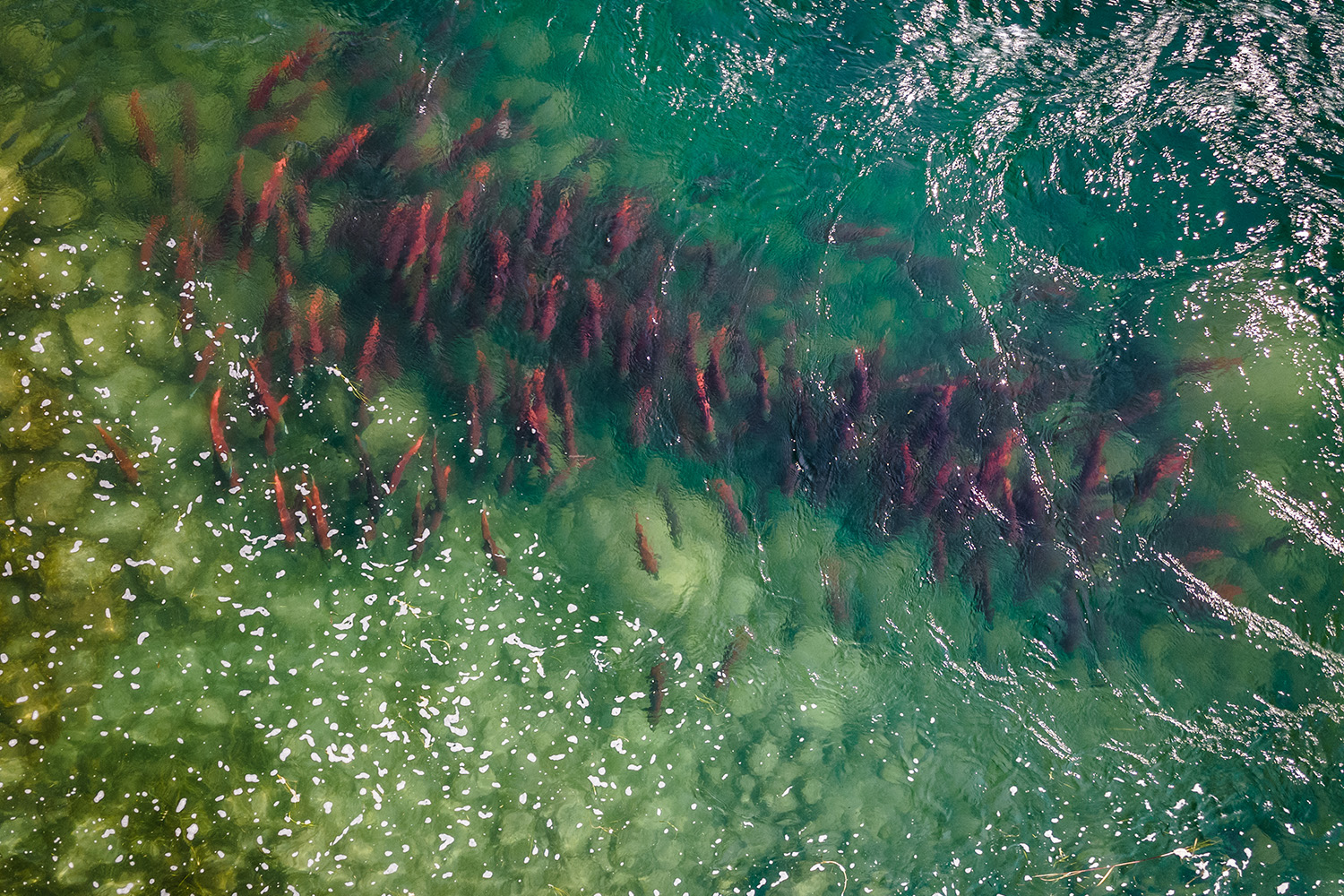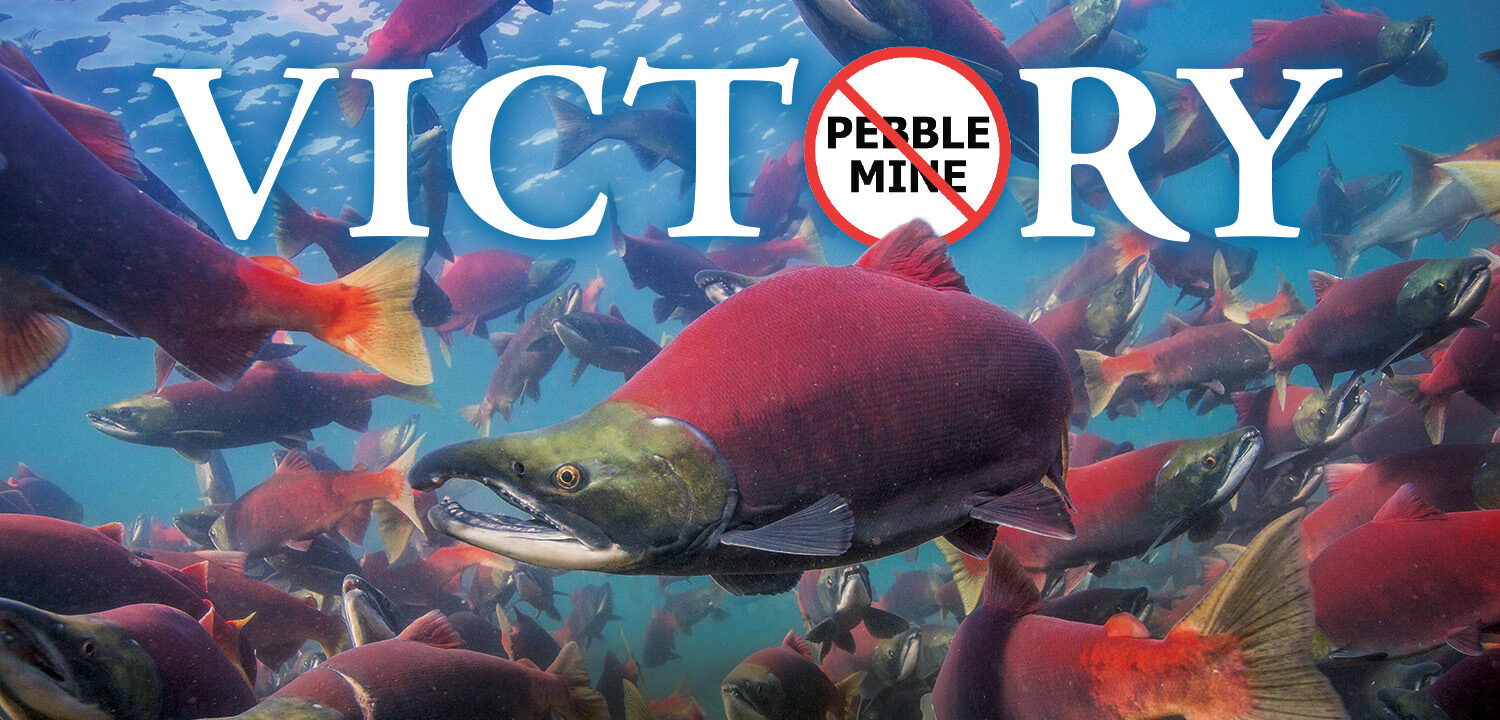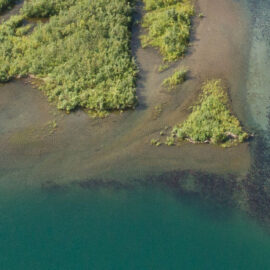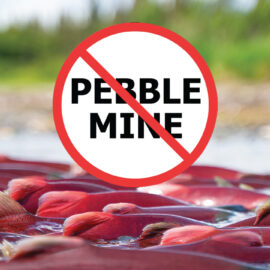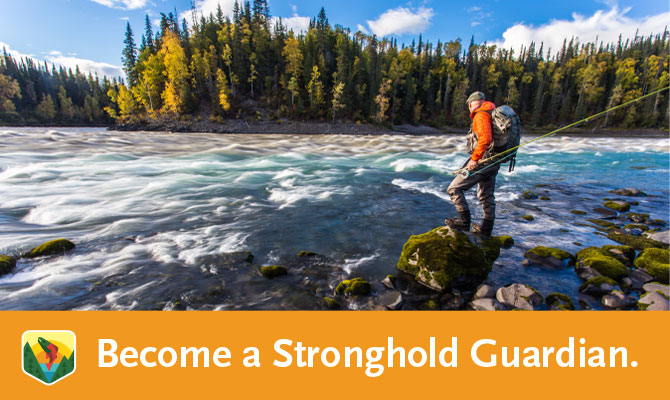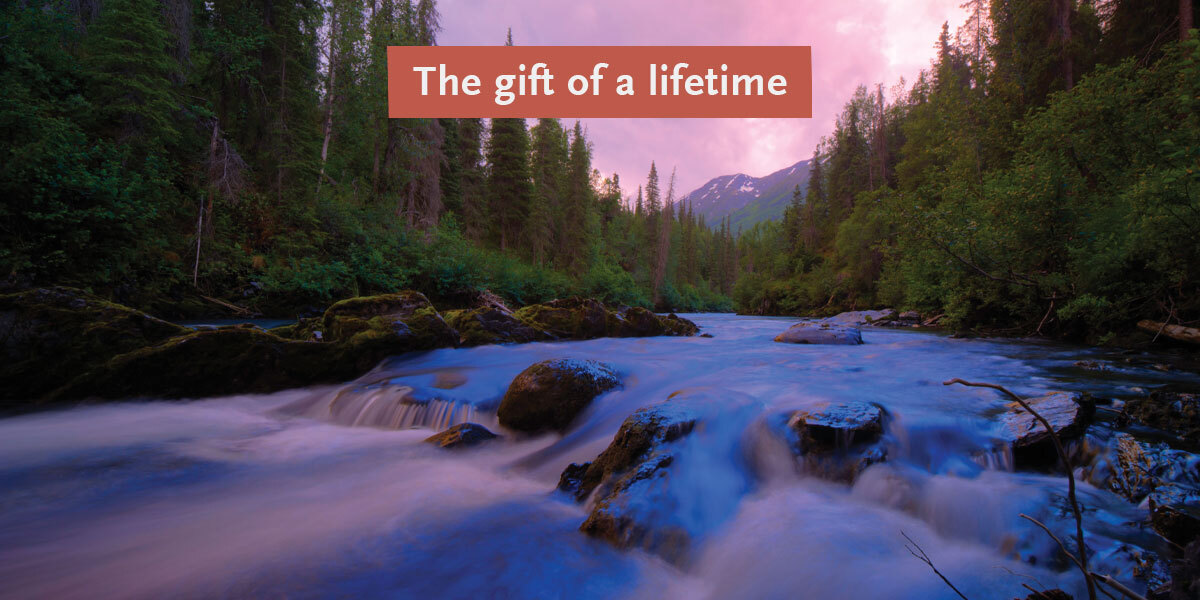We stopped Pebble Mine.
January 31, 2023, is Victory Day in our long, long fight against Pebble Mine.
Today, the U.S. Environmental Protection Agency announced that Clean Water Act (“404c”) protections will safeguard the headwaters of Alaska’s Nushagak and Kvichak Rivers.
This means that Bristol Bay’s headwaters—the nursery sustaining the world’s greatest remaining wild sockeye salmon fishery—are now off-limits to Pebble Mine.
And while we expect a legal challenge from Pebble’s parent company, we’re confident that today’s decision creates a firm roadblock for Pebble and any mine like it.
“What a day for wild salmon! This is a victory for a whole ecosystem and one of the most important salmon strongholds left on the planet,” says Wild Salmon Center President & CEO Guido Rahr. “It’s a victory for clean water, for the tens of millions of salmon that return to Bristol Bay’s watersheds every year, for the thousands of people in communities built around these fish, and for the 137 species that depend on that returning salmon, along with orcas, grizzly bears, caddis flies and everything in between.”
This is a victory for a whole ecosystem and one of the most important salmon strongholds left on the planet.
WSC President & CEO Guido Rahr
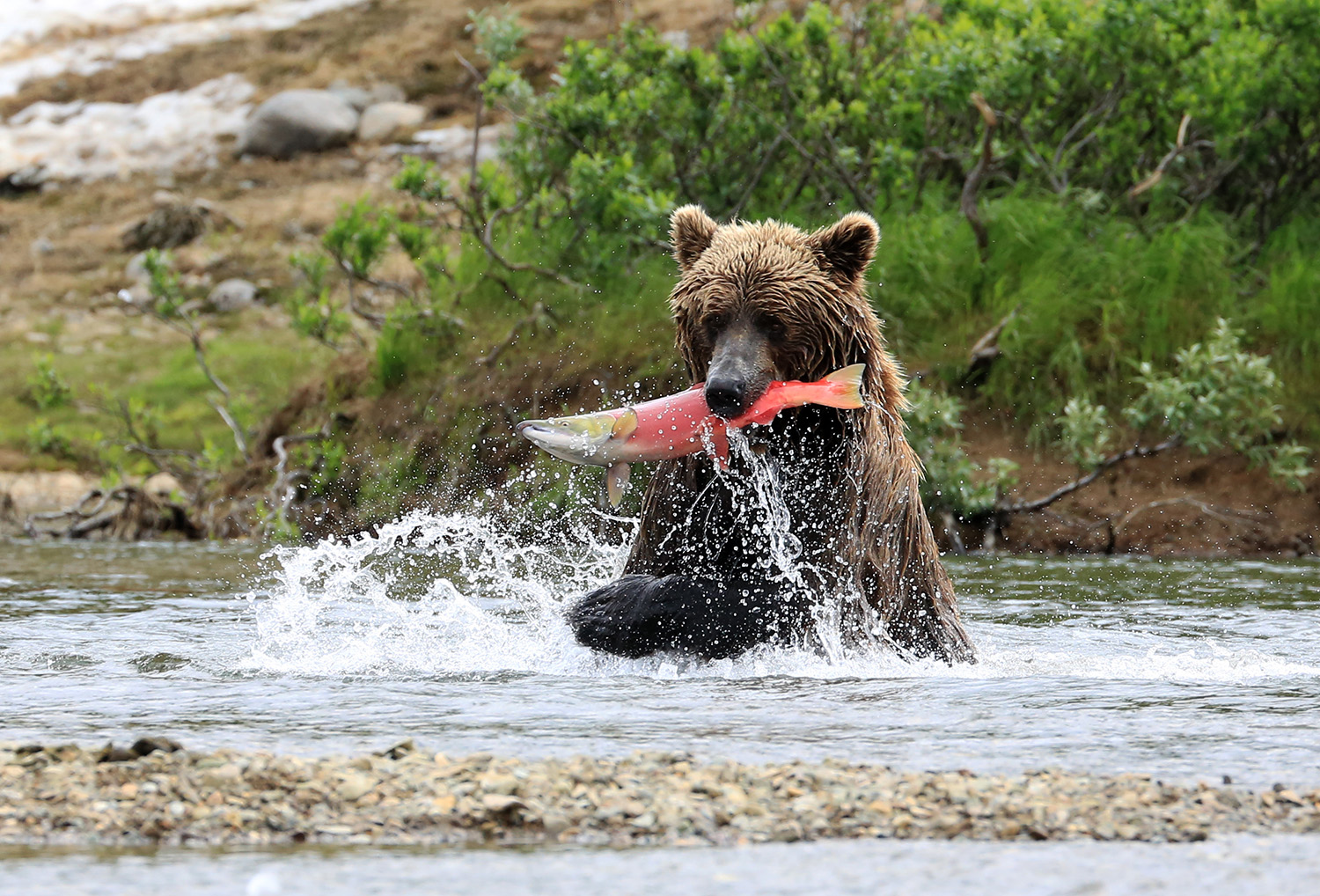
EPA’s decision comes after more than a decade of relentless campaigning by Tribes, commercial fishermen, and sportfishing operators in Bristol Bay, and by members of the Bristol Bay Defense Fund, our coalition led by the United Tribes of Bristol Bay.
Since 2011, local coalitions have helped rally wave after wave of opposition to the quest by Northern Dynasty, Pebble’s backer, to build the world’s largest open pit mine in this pristine, roadless wilderness. Over the years, the science has been clear on the mine’s threats to Bristol Bay and its salmon fishery. (WSC released one of the first comprehensive scientific reports on the topic in 2012.) The U.S. Army Corps of Engineers cited these unacceptable risks in denying a key federal permit Pebble in 2020.
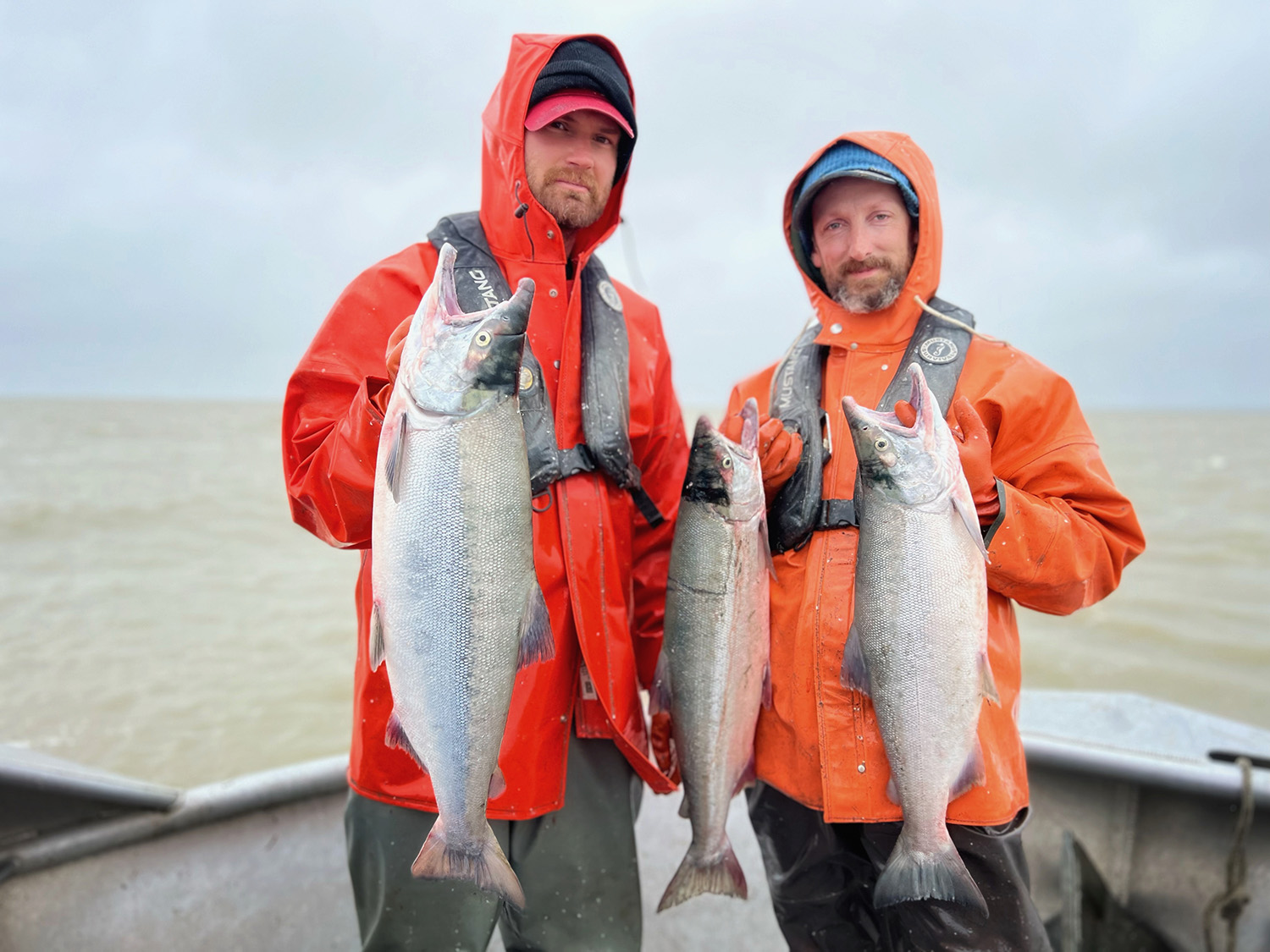
With you by our side, we’ve fought Northern Dynasty’s misinformation and outright deception, its backroom deals, ever-shifting politics, and regulatory whiplash within federal agencies. Hope first built for a quick end to Pebble during the Obama Administration, then nearly died under the Trump Administration. In 2020, we rallied again—this time with leaders across the political spectrum—as evidence of Pebble’s dangers went mainstream, along with Northern Dynasty’s true intentions for industrializing Bristol Bay.
Throughout all this, you showed up. Over the past 12 years, EPA has received more than FOUR MILLION letters of support for protecting Bristol Bay, its communities, and its irreplaceable wild salmon fishery.
“After twenty years, we can now breathe a sigh of relief,” says Alannah Hurley, Executive Director for the United Tribes of Bristol Bay. “Today’s decision from the Environmental Protection Agency to protect Bristol Bay and veto the dangerous and destructive Pebble Mine lifts a dark cloud that has hung over my head, and the head of every person, Tribe, and community in Bristol Bay, for the last two decades.”
After twenty years, we can now breathe a sigh of relief. Today’s decision lifts a dark cloud that has hung over my head, and the head of every person, Tribe, and community in Bristol Bay, for the last two decades.
United Tribes of Bristol Bay Executive Director Alannah Hurley
Today, EPA has issued a HARD NO to any hard rock mining and waste disposal in the Nushagak and Kvichak headwaters. It’s not only a definitive rejection of Pebble, but also a basis for rejecting any future hard rock mining proposals in Bristol Bay’s headwaters.
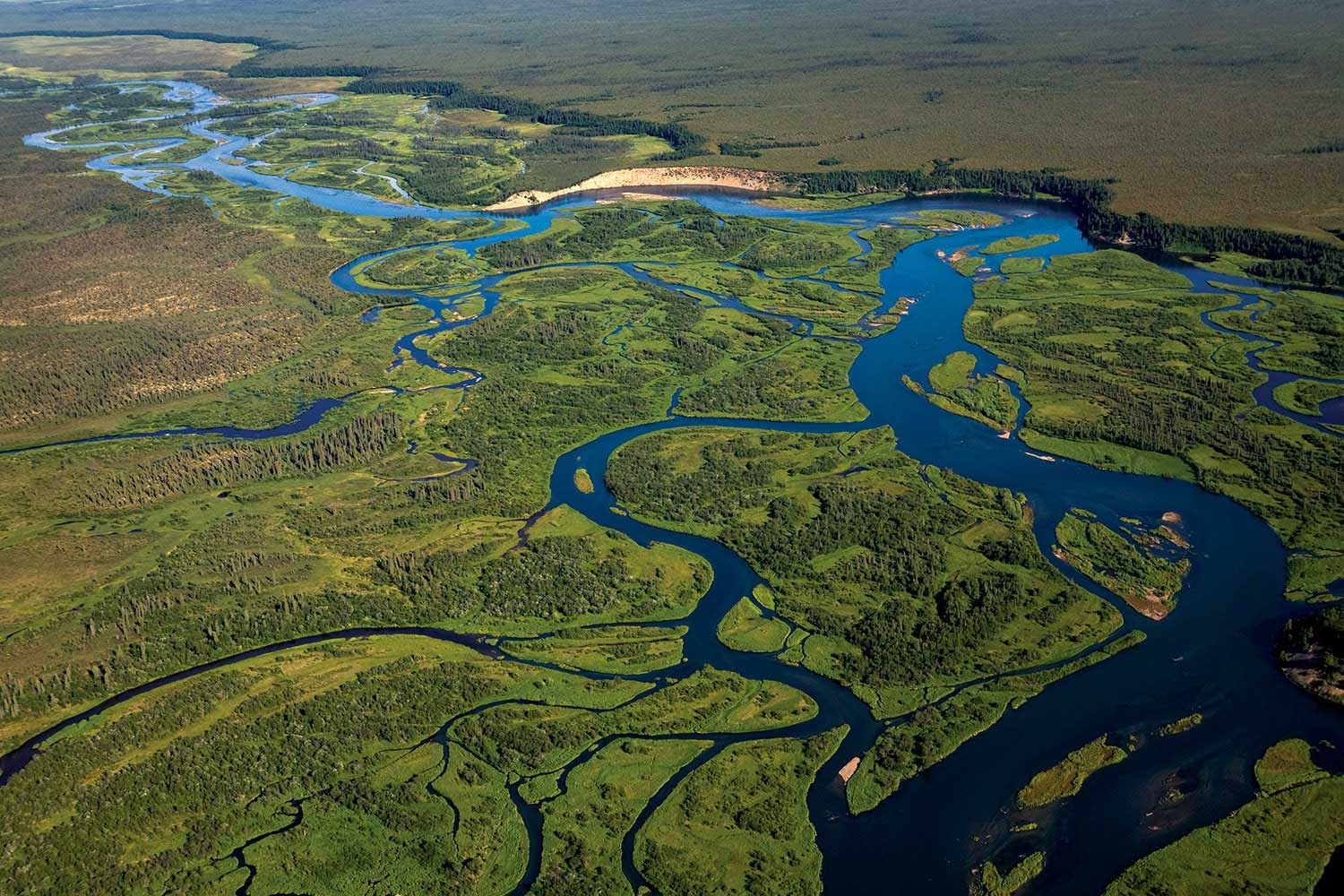
It’s also a win for the entire planet. Increasingly, governments are acting in recognition of the massive role that carbon-absorbing wetlands like Bristol Bay play in climate resilience strategies, including those of the Biden Administration.
“EPA and the Biden Administration deserve a huge thank you for listening to Alaska Tribes, residents, and fishermen, and stepping up to protect this American treasure,” Rahr says. “If we had lost Bristol Bay—and this mine was a very real threat—wild salmon would have taken a definitive turn for the worse. But now we can take this momentum and build a more hopeful future for wild salmon everywhere, along with the communities who cherish them and the life-sustaining rivers we all call home.”
According to WSC Alaska Program Director Emily Anderson, blocking Pebble and mines like it was EPA’s only logical path, given the unequivocal conclusions of its own scientists.
EPA’s move also affirms the Clean Water Act recommendations made by EPA’s Region 10 Office in Seattle in December.
Alaska Native Tribes, communities, businesses, and fishermen never gave up on Bristol Bay, and millions of people stood with us. Now everyone who loves their home river knows the power of all of us standing together.
WSC Alaska Program Director Emily Anderson
“This is a great day for the people of Bristol Bay,” says WSC Alaska Program Director Emily Anderson. “For decades, the mine cast a shadow of uncertainty. But Alaska Native Tribes, communities, businesses, and fishermen never gave up on Bristol Bay, and millions of people stood with us. Now everyone who loves their home river knows the power of all of us standing together.”
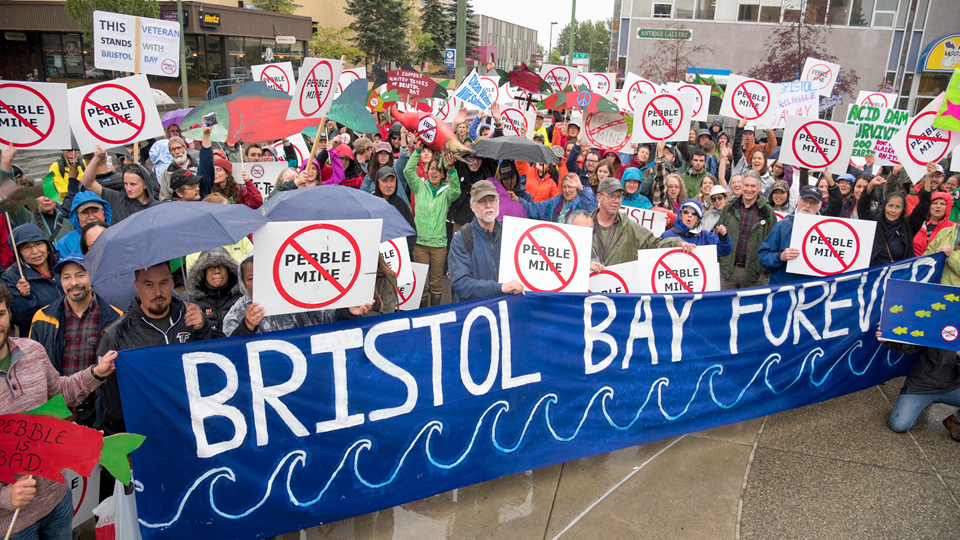
And should a mining operation like Northern Dynasty attempt any sort of regulatory end run in the future, Anderson says our winning coalition stands ready to again defend Bristol Bay—this time in court, backed by EPA’s foundational decision.
She’s confident that we’ll win again, because this place is simply too important. And now, after so many years of fighting, the whole planet knows it.
After a decade of uncertainty, it’s time to celebrate. Together, we stopped Pebble Mine—forever.
PEBBLE IN THE NEWS:
“Breaking News: EPA Issues 404(c) Protections for Bristol Bay,” Fly Fisherman Magazine
“Finally, Protections Realized for Bristol Bay–EPA Rejects Pebble Mine,” Fly Lords Magazine
“E.P.A. Blocks Long-Disputed Mine Project in Alaska,” New York Times
“EPA may have dealt final ‘nail in the coffin’ to Alaska’s Pebble Mine,” Washington Post
“EPA blocks Alaska Pebble Mine in salmon-rich Bristol Bay region,” Seattle Times
“EPA issues long-awaited final determination halting Pebble mine,” Anchorage Daily News
“The EPA vetoed Alaska’s proposed Pebble Mine,“ High Country News
“EPA Blocks Controversial Alaska Gold Mine To Protect Salmon,” Forbes
